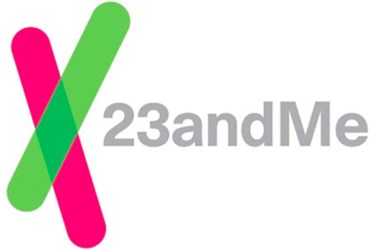FDA Relaxes Stance On Direct-To-Consumer Genetic Tests

In the most recent development in the ongoing dialogue between the FDA and 23andMe, the company’s new direct-to-consumer (DTC) genetic test for Bloom Syndrome, a rare disorder that causes stunted growth and an elevated cancer risk, has been approved for the U.S. market. The FDA has also indicated a willingness to ease earlier restrictions on direct-to-consumer genetic tests.
The regulatory struggle surrounding 23andMe’s DTC genetic tests dates back to Nov. 2013, when the FDA issued a warning letter to 23andMe halting the sale of a $99 genetic test called the Saliva Collection Kit and Personal Genome Service (PGS). This test provided consumers with an ancestry report that included over 200 genetic screens for specific diseases and disorders. The medical nature of the information and a potential risk to the public led the FDA to classify the test as a medical device and to stipulate that this and future products of this type would be subject to FDA regulation.
In a 2013 blog post shortly following the warning letter, 23andMe reinforced its willingness to work side-by-side with the FDA in laying the groundwork for new regulation to govern DTC genetic tests.
Last June, 23andMe submitted the Bloom Syndrome DTC test to the FDA for approval. At the time, the company’s chief legal and regulatory officer, Kathy Hibbs, remarked that an approval would pave the way for additional products.
“Once cleared, it will help 23andMe and the FDA establish the parameters for future submissions. More importantly for our customers, it marks a baseline on the accuracy and validity of the information we report back to them,” Hibbs said in a statement.
Not only did the FDA approve the Bloom Syndrome test, the agency has begun to lay out plans to relax its stance on DTC genetic tests for certain autosomal recessive diseases, those that do not present with any symptoms in the parent and yet still can be passed from parent to child.
“The FDA believes that in many circumstances it is not necessary for consumers to go through a licensed practitioner to have direct access to their personal genetic information. Today’s authorization and accompanying classification, along with the FDA’s intent to exempt these devices from FDA premarket review, supports innovation and will ultimately benefit consumers,” Alberto Gutierrez, director of the Office of In Vitro Diagnostics and Radiological Health in the FDA’s Center for Devices and Radiological Health (CDRH), said in a FDA press release.
FDA press officer Jennifer Dooren told Forbes that the larger, more comprehensive PGS test would not be included in these exemptions. Exactly which tests would qualify for an exemption would be included in an upcoming FDA notice, she said. “It’s not opening up the floodgates,” Dooren said.
Since the 2013 ban, 23andMe has only provided genetic tests for genealogy research and will continue to do so until further notice. Despite the approval, the 23andMe website states that the company only provides “ancestry-related genetic reports and uninterpreted raw genetic data only.”
In a statement responding to the recent FDA approval, 23andMe CEO Anne Wojcicki said, “We intend to add some health-related genetic reports in the future once we have a comprehensive product offering. At this time, we do not know which health reports might be available or when they might be available.”
